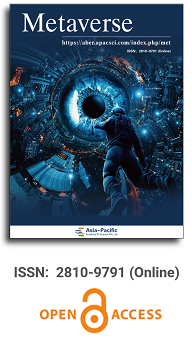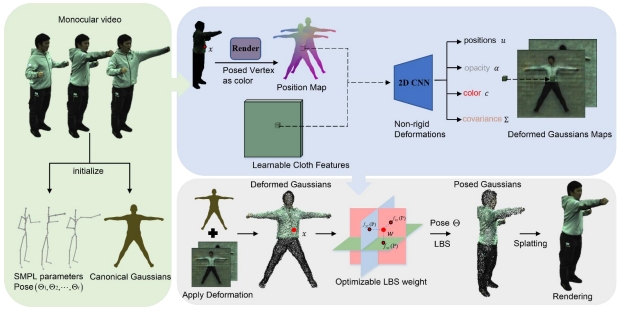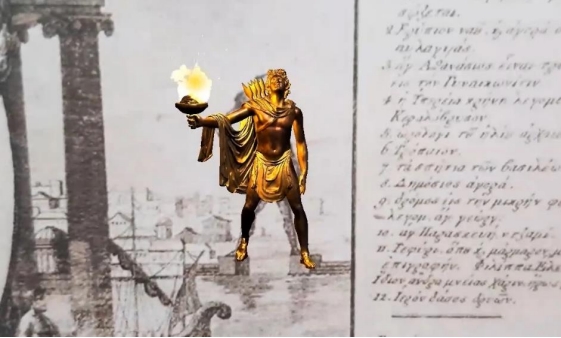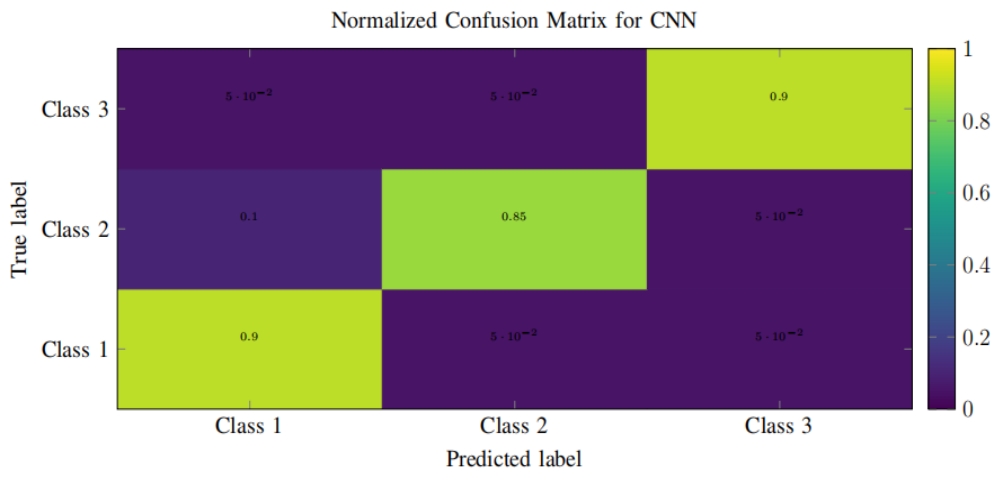
Asia Pacific Academy of Science Pte. Ltd. (APACSCI) specializes in international journal publishing. APACSCI adopts the open access publishing model and provides an important communication bridge for academic groups whose interest fields include engineering, technology, medicine, computer, mathematics, agriculture and forestry, and environment.



From paper to virtual: The meta-life of a historical cartographic artifact
Vol 6, Issue 1, 2025
Download PDF
Abstract
The Charta of Rigas Velestinlis is one of the most important works of the eighteenth-century Neo-Hellenic Enlightenment and the most characteristic sample of Greek scholar cartography. Printed in Vienna in 1220 copies in 1796-1797, this emblematic map of the Balkan peninsula significantly influenced the development of ideas and perspectives that inspired the Greek War of Independence from the Ottoman Empire in 1821. The sixty (60) known remaining copies of this valuable material in Greece and abroad remain stored in the confined spaces of libraries, museums, and archives, strictly guarded for security, conservation, and preservation. This renders their access difficult to both the general public and the educational community. Since the Onassis Library and the General State Archives of Greece—Cartographic Heritage Archives both possess an original copy of this historical document each, they design and implement many educational programs aiming at highlighting its importance and reintroducing it to the public. This paper will present how the usage of new technologies, both in software and hardware, has facilitated the showcasing of cultural heritage artifacts, such as Rigas’ Charta, with an emphasis on technologies and resources that are freely available to everyone. It will also be demonstrated how the digitization projects, the digital libraries, repositories, and platforms implemented by many cultural and research organizations during the last decade, presented the opportunity for the new generation to come in contact with a variety of “locked away” historical documents, like Rigas’ Charta, allowing their reuse and reinterpretation while providing unlimited potential for the collection, research and presentation of facts, evidence and data. Furthermore, the incorporation of this digital cultural wealth in the school curriculum through targeted educational programs and the creative combination with open-source metaverse development tools, unleashed the possibilities of reviving the past, extending the life span of old materials to perpetuity. As a result, this multimodal approach paved the way for the emergence of a new more democratic, open-access, and inclusive educational model.
Keywords
References
- Tolias G. A Farewell to Genus: Patriotism and Empire in Rhigas’ Cartographic Work, 1796–1797 (Greek). Menandros for the General State Archives. 2010.
- Karamberopoulos D. Rhigas Velestinlis (1757–1798) and his revolutionary plan for a democratic state at the balkan area. Academia. 2008.
- Karamberopoulos D. Rhigas Velestinlis, Map of Greece…, Vienna 1796–1797. Scientific Association of Studies Pheres-Velestino-Rhigas. 1998.
- Karamberopoulos D. Rhigas Velestinlis, Revolutionary Scripts. (Revolutionary Proclamation-Human Rights-The Constitution-Thourios). Scientific Society of Studies Pheres-Velestino-Rhigas. 2003.
- Laios G. The Maps of Rigas. Research on new sources (Greek). Bulletin of the Historical and Ethnological Society of Greece. 1960; 14: 231–312.
- Livieratos E. On the cartography of Rigas Charta. e-Perimetron. 2008; 3(3): 120–145.
- Hatzigianni K. Educational Activities from the General State Archives of Greece: Examples of Implementation. In: Vakalopoulou M, Karapidakis NE (editors). Archives. The Practices of General State Archives of Greece; 2012.
- Sarra. Historical Research Group of the PSPA Archive 1929–1989. Available online: http://www.pspa.eu/index.php/drastiriotites-pspa/mathitikoi-omiloi/69-mathitikoi-omiloi-2017-18/136-omilos-istorikis-erevnas-arxeiou-pspa (accessed 20 December 2023).
- Chatterjee HJ, Hannan L, Duhs R, et al. In: Object-Based Learning: A Powerful Pedagogy for Higher Education. Routledge; 2013.
- Chatterjee HJ, Hannan L. Engaging the Senses: Object-Based Learning in Higher Education. Routledge; 2015.
- Hardie K. Wow: The power of objects in object-based learning and teaching (Innovative pedagogies series). Available online: https://s3.eu-west-2.amazonaws.com/assets.creode.advancehe-document-manager/documents/hea/private/kirsten_hardie_final_1568037367.pdf (accessed 20 December 2023).
- Romanek D, Lynch B. Touch and the Value of Object Handling: Final Conclusions for a New Sensory Museology. In: Chatterjee HJ (editor). In Touch in Museums: Policy and Practice in Object Handling. Berg; 2008.
- Papadakis S, Kalogiannakis M. Evaluating the effectiveness of a game-based learning approach in modifying students’ behavioural outcomes and competence, in an introductory programming course. A case study in Greece. International Journal of Teaching and Case Studies. 2019; 10(3): 235–250.
- Deterding S, Dixon D, Khaled R, et al. From game design elements to gamefulness: Defining “gamification”. In: Proceedings of the 15th International Academic Mindtrek Conference: Envisioning Future Media Environments; 28–30 September 2011; New York, NY, USA. pp. 9–15.
- Diamantis K, Gerontopoulou V, Pazarli M. Bringing to life Rigas Velestinlis’ Charta of Greece (1796–7) by using Augmented Reality Technology and 3D visualization. History, Computer Science, Art. 2022. doi: 10.5281/zenodo.5881728
- Gerontopoulou V. Live online tours of the Onassis Library. In: Proceedings of the 8th Panhellenic Conference “Education & Culture in the 21st century”; 13–14 Μay 2023.
- Sideris N, Gerontopoulou V. Unlocking Cultural Heritage: How the Onassis Library Embraces Technology to Connect with Society. In: Proceedings of the 53rd LIBER Annual Conference; 3–5 July 2024; Limassol, Cyprus.
- Pazarli M, Diamantis K, Gerontopoulou V. Hack the map’, a digital educational program inspired by Rigas Velestinlis’ Charta of Greece (1796–1797). International Journal of Cartography. 2021; 8(3): 1–16, doi: 10.1080/23729333.2021.1972908
- Diamantis K, Gerontopoulou V, Pazarli M. The Panhellenic Student Competition “Hack the Map: Rigas’ Charta”—Building a new educational paradigm for generation next. In: Proceedings of the 2nd International Online Conference on Digital Transformation in Culture and Education; 16–17 May 2022; Belgrade, Serbia.
- Sofos A. Digital Literacy as a Category of Media competence and Literacy—an Analytical Approach of Concepts and Presuppositions for Supporting Media Competence at School. In: Bauer P, Hoffmann H, Mayrberger K (editors). Fokus Medienpädagogik—Aktuelle Forschung-und Handlungsfelder. Kopaed; 2010. pp. 62–82.
- Figuerdo OB, Sarmiento JA. The challenge of training university professionals to integrate mobile learning. Educacion Medica Superior. 2017; 31(1): 61–77.
Supporting Agencies
Copyright (c) 2025 Author(s)
License URL: https://creativecommons.org/licenses/by/4.0/

This site is licensed under a Creative Commons Attribution 4.0 International License (CC BY 4.0).

Prof. Zhigeng Pan
Professor, Hangzhou International Innovation Institute (H3I), Beihang University, China

Prof. Jianrong Tan
Academician, Chinese Academy of Engineering, China
Conference Time
December 15-18, 2025
Conference Venue
Hong Kong Convention and Exhibition Center (HKCEC)
...
Metaverse Scientist Forum No.3 was successfully held on April 22, 2025, from 19:00 to 20:30 (Beijing Time)...
We received the Scopus notification on April 19th, confirming that the journal has been successfully indexed by Scopus...
We are pleased to announce that we have updated the requirements for manuscript figures in the submission guidelines. Manuscripts submitted after April 15, 2025 are required to strictly adhere to the change. These updates are aimed at ensuring the highest quality of visual content in our publications and enhancing the overall readability and impact of your research. For more details, please find it in sumissions...






.jpg)
.jpg)

